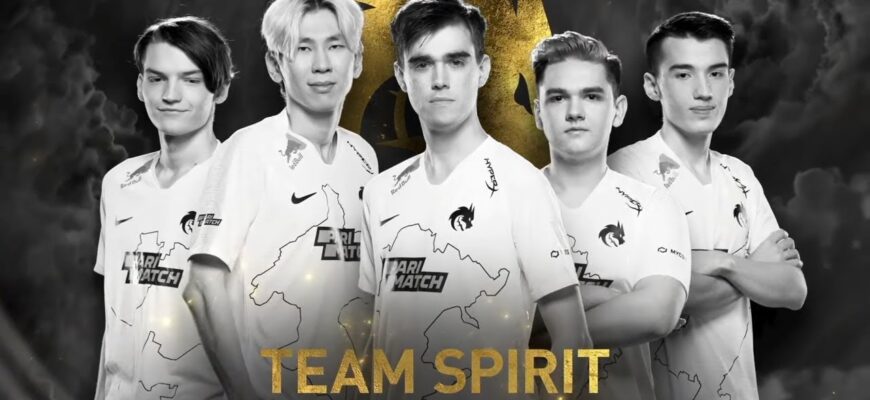In the high-stakes world of professional esports, success is often the ultimate metric, a testament to skill, teamwork, and strategic prowess. Yet, triumph can cast a long, complex shadow, particularly for those who once stood on the precipice of glory with a team, only to see that team achieve its zenith after their departure. This nuanced reality was recently brought to light by prominent Dota 2 streamer Alexander “Nix” Levin, whose candid commentary on Team Spirit`s back-to-back victories at the Riyadh Masters has resonated deeply within the competitive community.
Team Spirit`s Reign: A Dynasty in the Making
Team Spirit has firmly established itself as a formidable force in the Dota 2 landscape. Their recent triumph at the Riyadh Masters 2025 marked their second consecutive victory in the prestigious Esports World Cup series, securing a staggering one million dollars from a total prize pool of three million. This remarkable performance, culminating in a decisive 3-0 sweep against Team Falcons in the grand finals, underscores their current reign at the top of the professional scene.
Nix`s Candid Observation: The Anguish of Absence
While the esports world celebrated Team Spirit`s dominant display, Nix offered a less conventional, yet profoundly insightful, perspective. During a recent broadcast, he mused on the potential emotional toll this success might take on former members of the squad. His core observation was stark: “The most terrible thing is to see your team win without you. You weren`t the person who influenced its success.”
“I`ve just never experienced anything like that. All my teams sucked if I left. I can`t even imagine what that`s like. I think it`s hard to live with that thought.”
Nix`s personal anecdote, delivered with a touch of self-deprecating irony, highlights a unique psychological challenge. While many athletes might derive satisfaction from seeing a former team excel, there`s a distinct form of personal scrutiny when that success is achieved *after* your departure, especially if your contributions were once perceived as integral. It raises questions about one`s legacy, influence, and the perpetual search for the perfect roster synergy.
The Evolving Roster and the Price of Progress
The history of Team Spirit at the Riyadh Masters provides the crucial context for Nix`s remarks. In 2022, the team secured a respectable second place with Alexander “TORONTOTOKYO” Khertek and Miroslav “Mira” Kolpakov as part of the lineup. The following year, Team Spirit claimed their first Riyadh Masters title, but with a significant change: Denis “larl” Sigitov had replaced TORONTOTOKYO in the mid-lane. Fast forward to the 2025 triumph, and another pivotal roster adjustment had occurred, with Alexander “rue” Filin stepping in for Mira. These tactical shifts, though leading to unparalleled success, inadvertently create a narrative for those players who were part of the journey but not the ultimate peak.
For players like TORONTOTOKYO and Mira, who contributed significantly to previous iterations of Team Spirit, witnessing their former comrades lift the trophy—not once, but twice—with new blood in their previous roles, presents a complex emotional landscape. It`s a testament to the team`s ability to adapt and find winning combinations, but also a stark reminder of the transient nature of professional esports careers and the constant pursuit of marginal gains.
The Unspoken Burden of Esports Legacy
Nix`s commentary transcends a simple observation; it delves into the often-overlooked psychological undercurrents of competitive gaming. In a scene where careers can be fleeting and roster changes are commonplace, individual players constantly grapple with their professional identity and legacy. Is one`s contribution solely measured by championship wins? Or does the journey, the growth, and the personal connections forged along the way hold equal weight?
For former members of a now-dominant team, the success of their old squad can be a double-edged sword: pride in their former teammates` achievements mixed with the quiet contemplation of “what if” or “why not when I was there?” It`s a subtle but significant burden, a testament to the intensely personal stakes within a seemingly team-centric sport. Nix`s perspective, perhaps born from his own career experiences, offers a rare glimpse into this often-unspoken aspect of professional esports, highlighting that even in victory, the human element of ambition, regret, and legacy remains profoundly complex.









